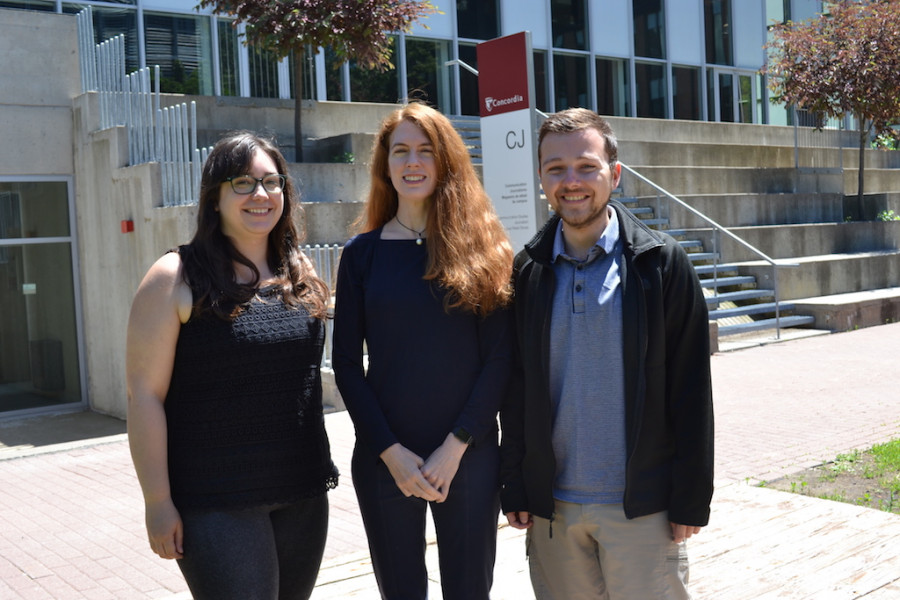Concordia Launches Investigative Journalism Institute
Former New York Times Journalist Patti Sonntag to Lead the Project
Concordia’s Journalism department has just announced it will now house an institute for investigative journalism.
With a focus on public service journalism, the institute will look to address Canada’s increasing problem with news poverty, said Patti Sonntag, the recently named director of the institute and former managing editor of the news services division of The New York Times .
“Canada is experiencing, because of its low population density, an especially steep decline in its (media) industry,” she said. “If we’re going to carry out public interest reporting, which is very difficult at the best of times, we need to come together.”
So far the project is expected to bring together students from Concordia, Carleton, Humber College, Mount Royal University, Ryerson University, University of King’s College, the University of Regina and the University of British Columbia–who will work in collaboration with Global News, the National Observer and the Toronto Star.
Though the institute is still looking to expand that list, and it’s not yet public what they’ll be looking into this year.
Sonntag also said the network will likely look to take part in solutions journalism.
“It’s the idea that, when you do find a problem, to do comparisons across jurisdictions and look at who does it better, and if there’s a policy that works better or any other solution look at why that hasn’t been implemented in the area that you’re looking at,” she said. “It’s about taking your reporting a step forward.”
The institute will also now host the National Student Investigative Reporting Network, which fuels collaborations between student journalists from Concordia’s journalism school and other journalism schools across Canada, and helps them organize large scale investigations with media companies and researchers.
“It brings us a greater support system and greater stability to try and do this large-scale body of research,“said Ryerson school of journalism professor and investigative journalist Robert Cribb of the Toronto Star, who founded the network in 2015.
“It existed before but it didn’t have a place, what existed was an informal network,” Cribb said. “Now it has an infrastructure, a homebase, an office in the Concordia institute.”
The network the institute will be hosting is mainly known for its Price of Oil project, which is still ongoing and has lead to the distribution of over 70 articles and broadcasts on the health risks created by Canada’s oil industry and the lack of accountability from the industry and government. A class of Concordia journalism students also took part in the project through a course taught by Sonntag last year.
Students in the journalism department can take an advanced investigative journalism course to join the student network, a 400 level course for students nearing the end of their degree. Some students who finish the course can also keep contributing to the institute’s projects if they’re later hired as researchers.
Chair of the journalism department David Secko said the groundwork for the investigative institute was laid in 2016 when they first hired Sonntag as a journalist in residence and asked her to begin a large investigation of public interest.
Through that residence, Sonntag, with the help of a group of journalism students, later published an in-depth piece in The Walrus that analyzed the risk spruce budworms posed to forests in northern Quebec. Soon afterwards she won the Michener-Deacon Fellowship for Journalism Education.
“That was the first pilot,” said Secko. “That was the proof of concept that this might actually work, and that we might actually want to make Concordia the center of doing this more widely and committing to doing it.”Secko said he hopes the course will enhance their student’s management skills, as the course demands a high level of organization and collaboration.
“Those skills don’t come easily in many ways, so (Sonntag) will be an excellent resource on that level, because she’s bringing that high level of having worked at The New York Times managing unit,” Secko said. “That’s a nice unique thing.”
This article has been updated to reflect follow up interviews, and to correct facts related to the National Student Investigative Reporting Network, the Price of Oil project and how to join the investigative institute. The Link regrets the errors.




_600_375_90_s_c1.jpg)

